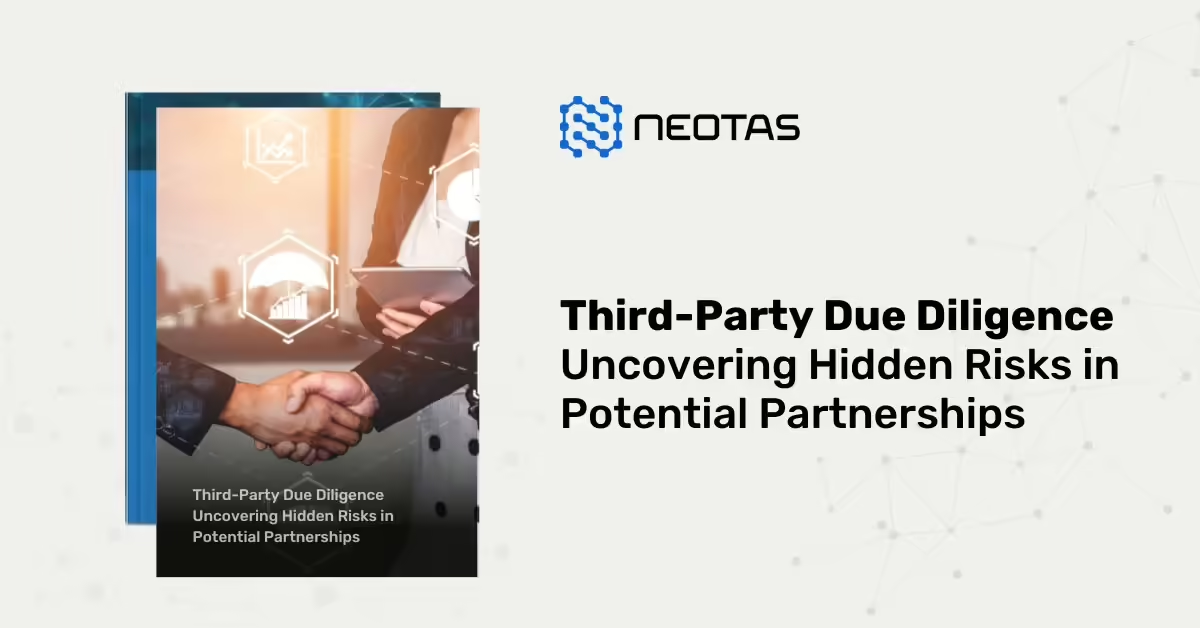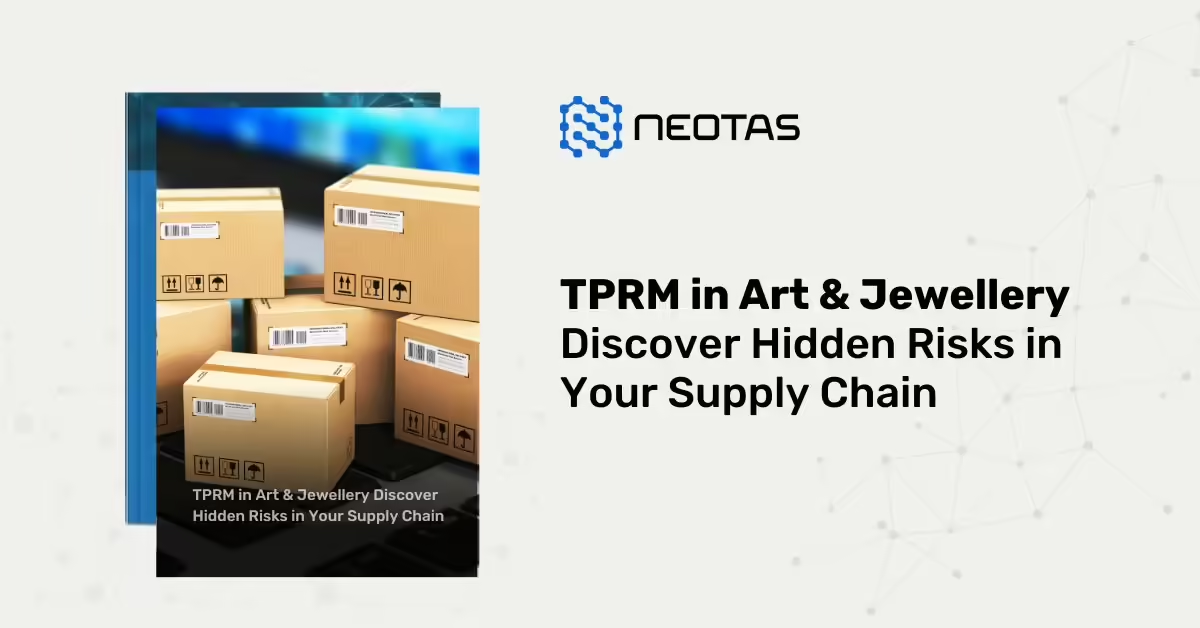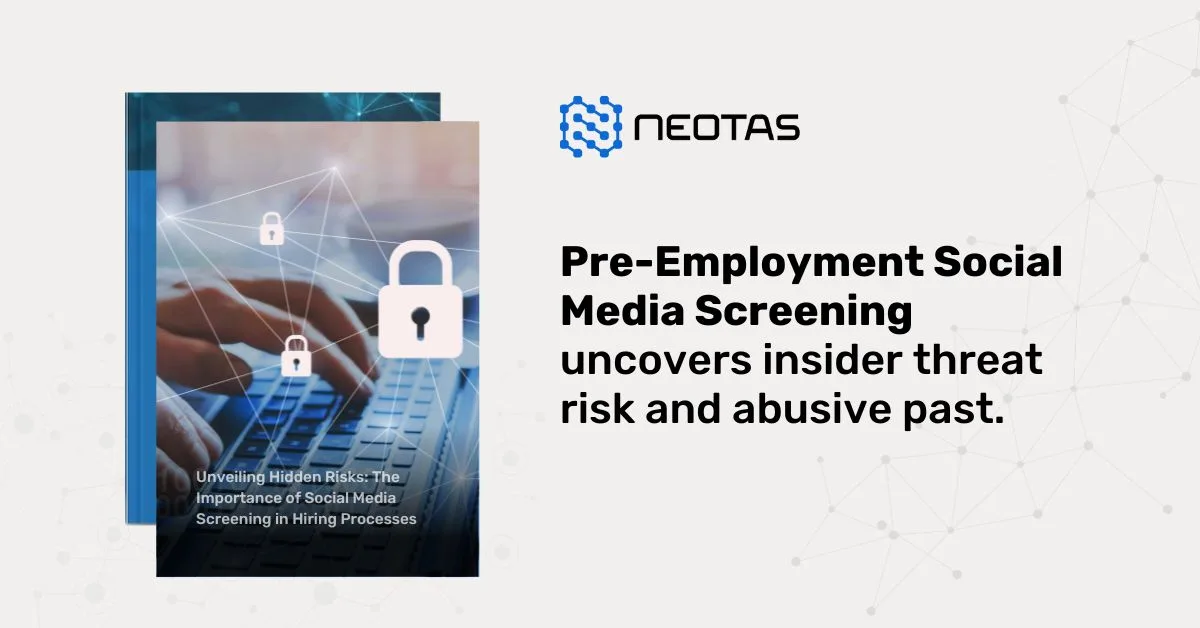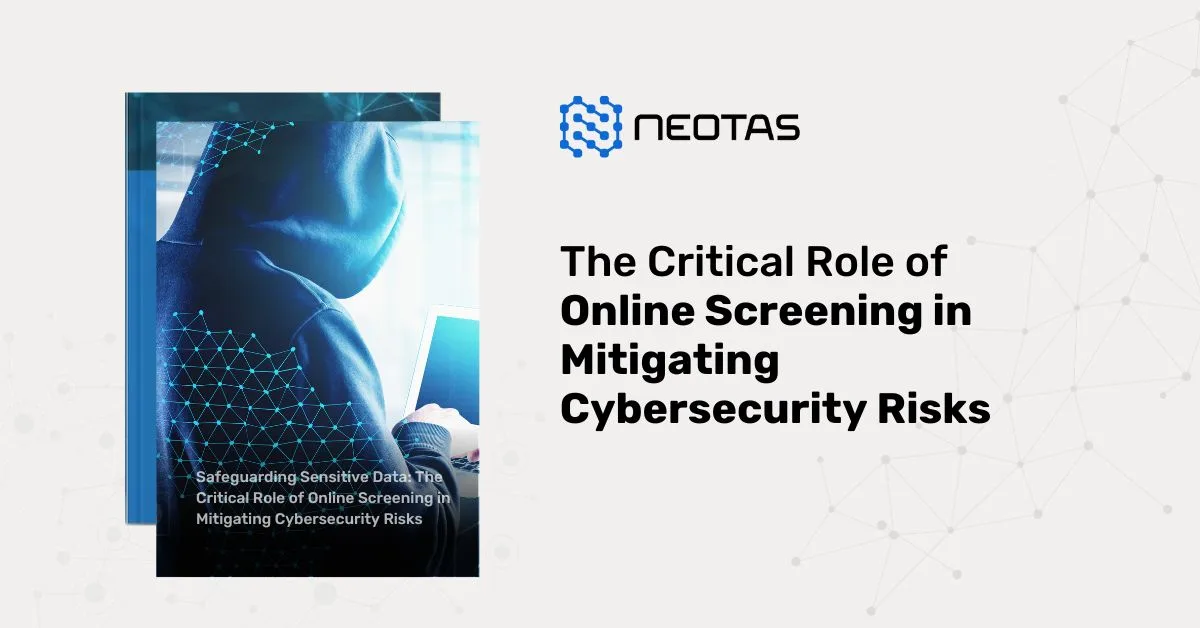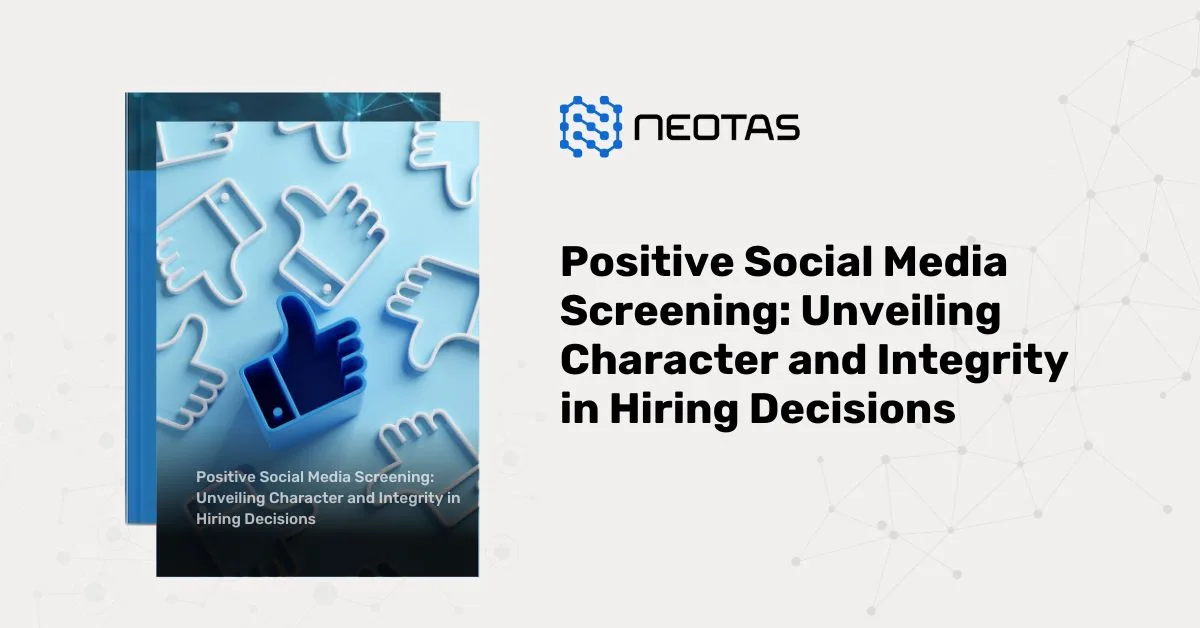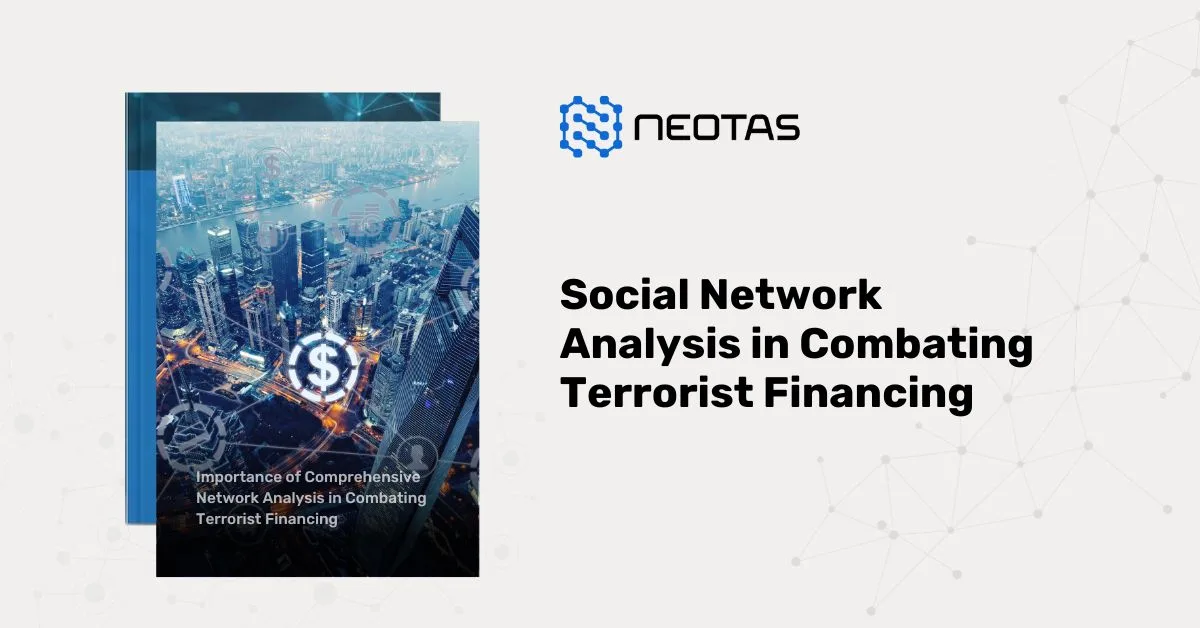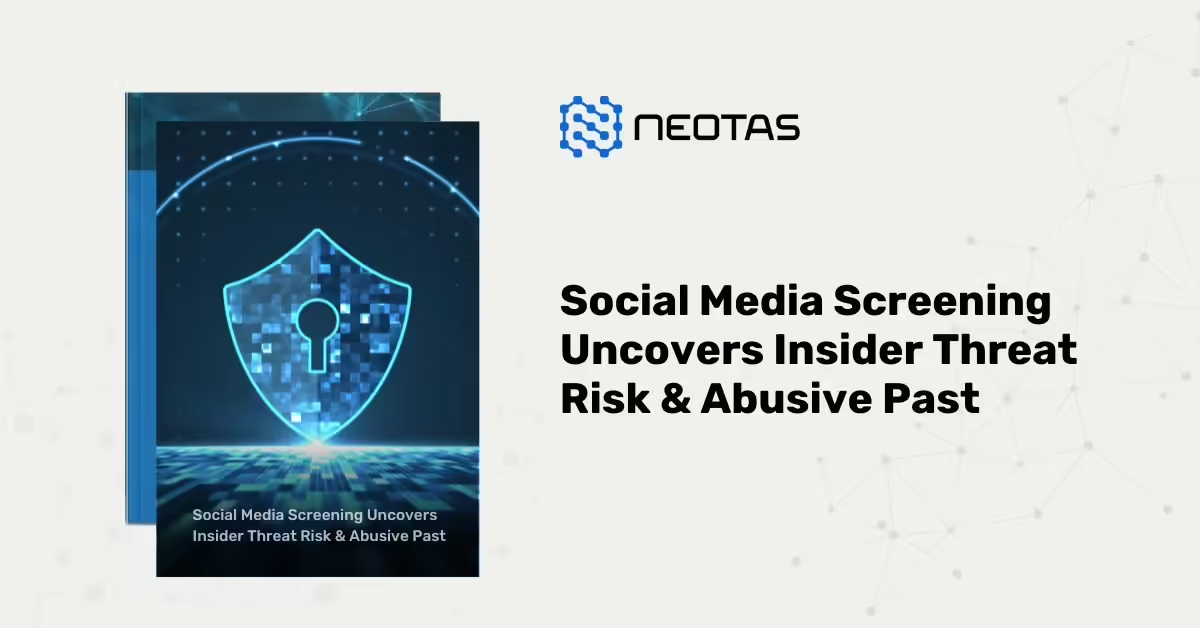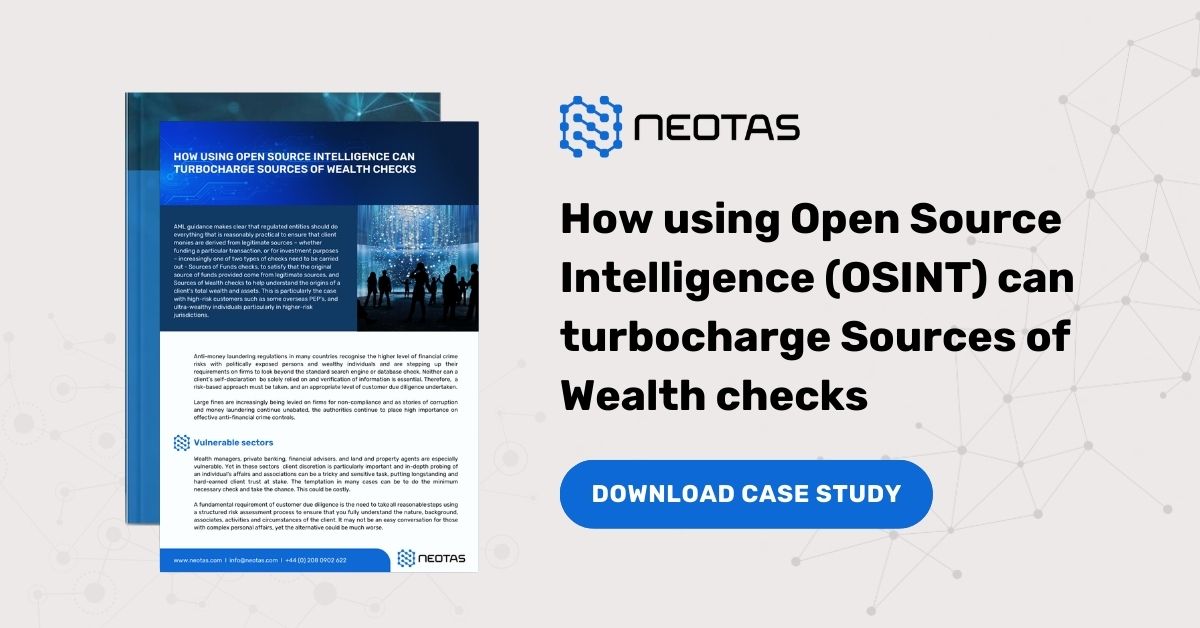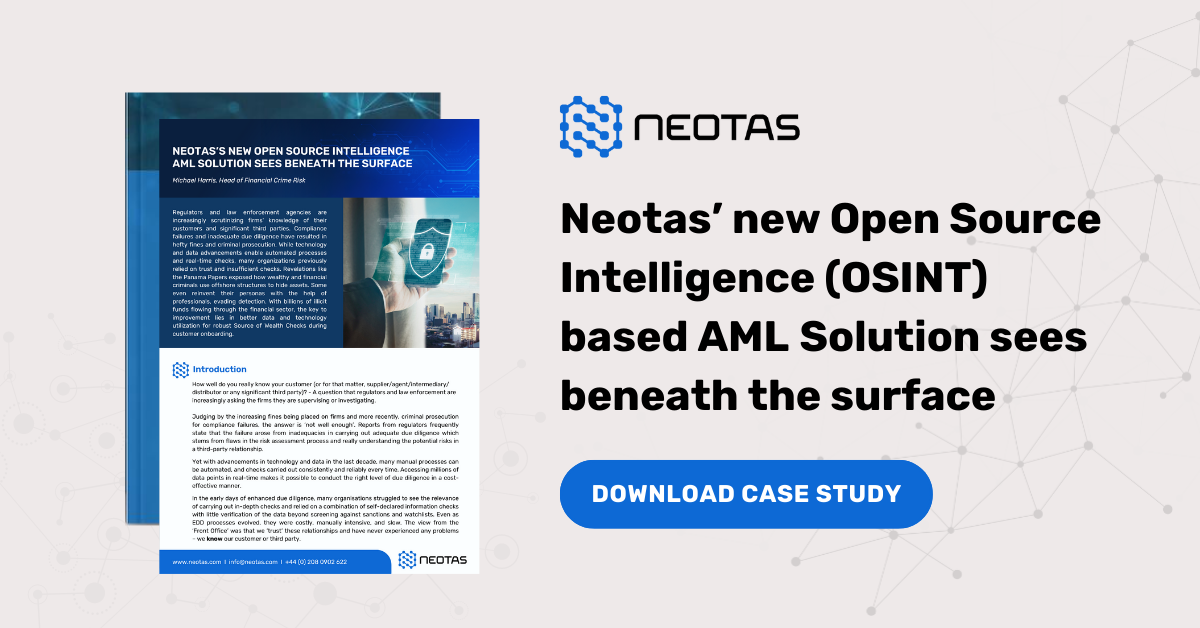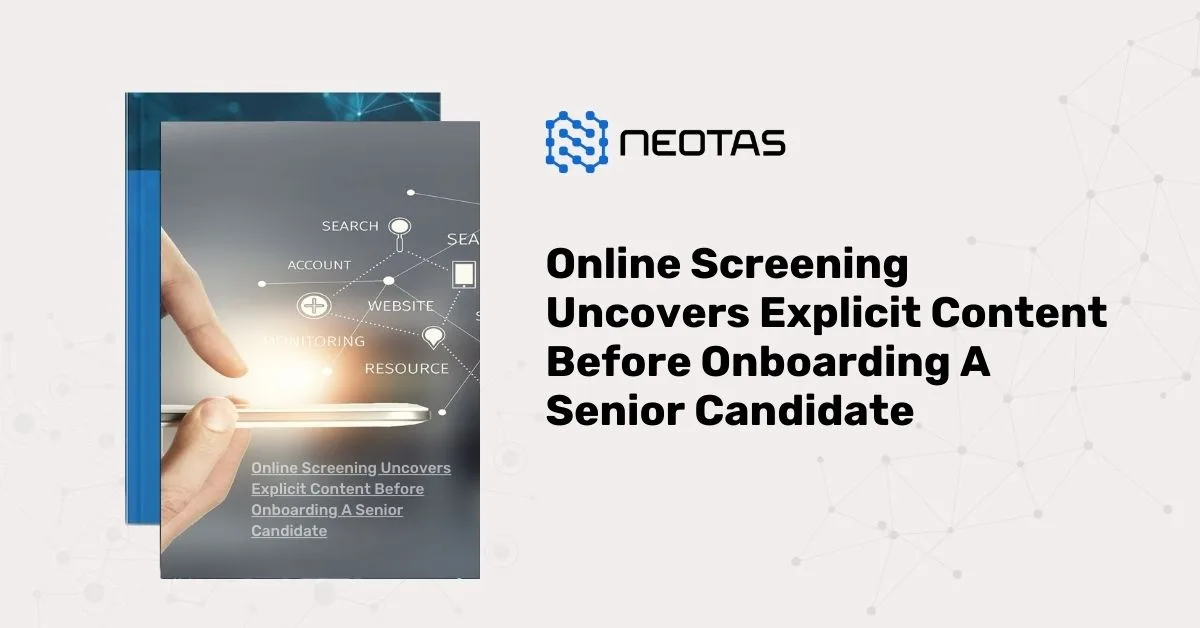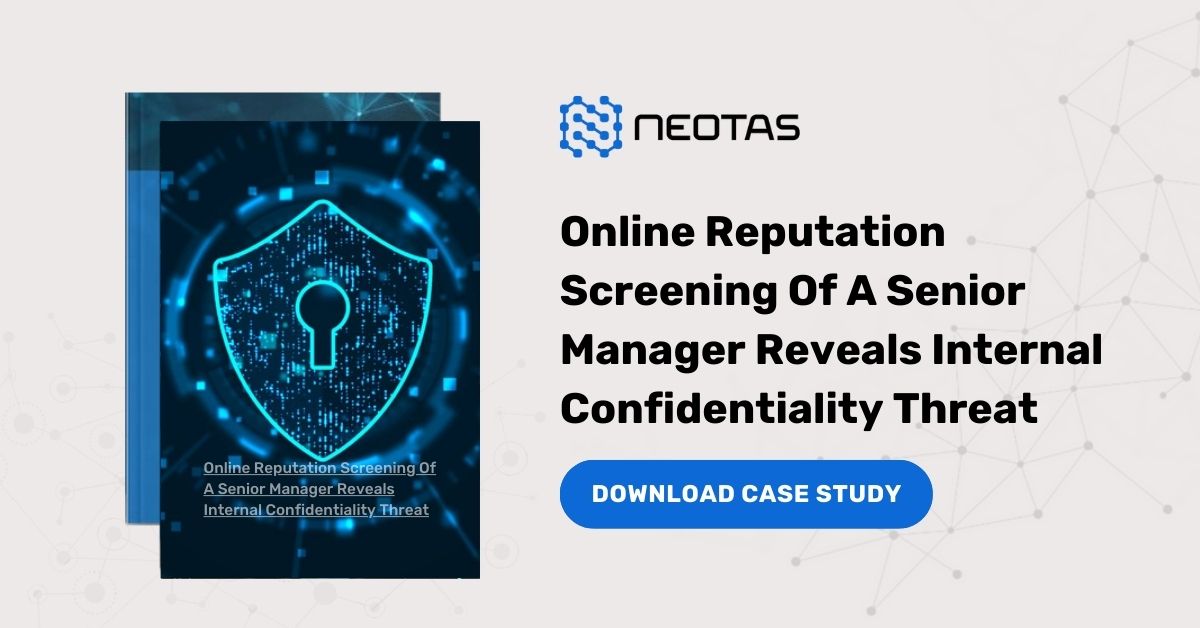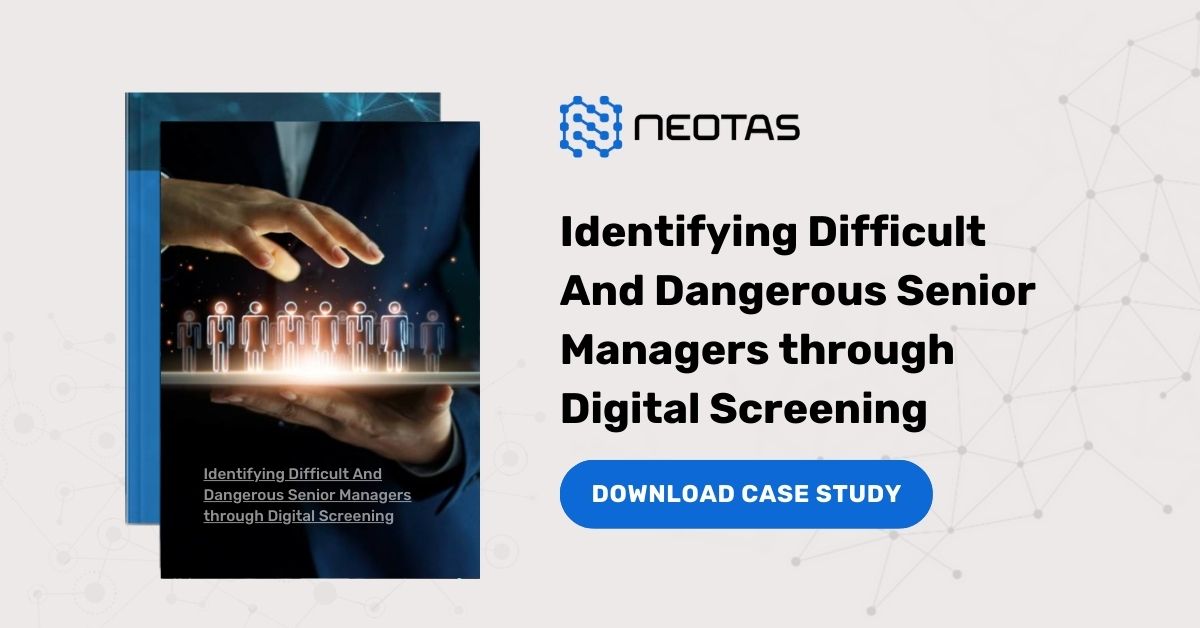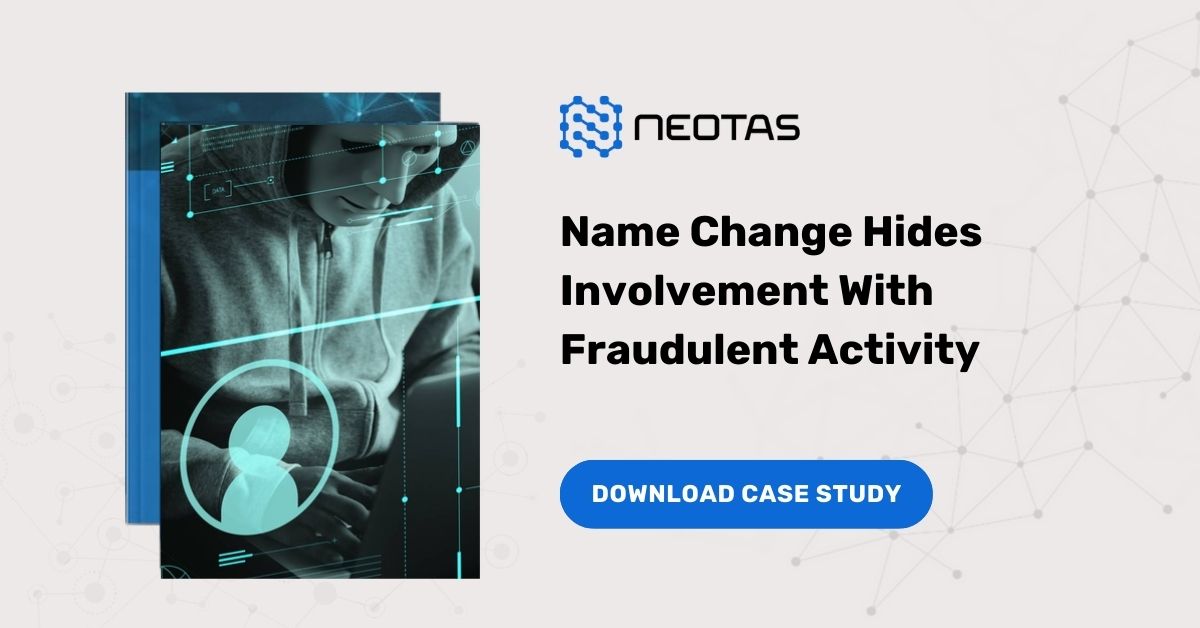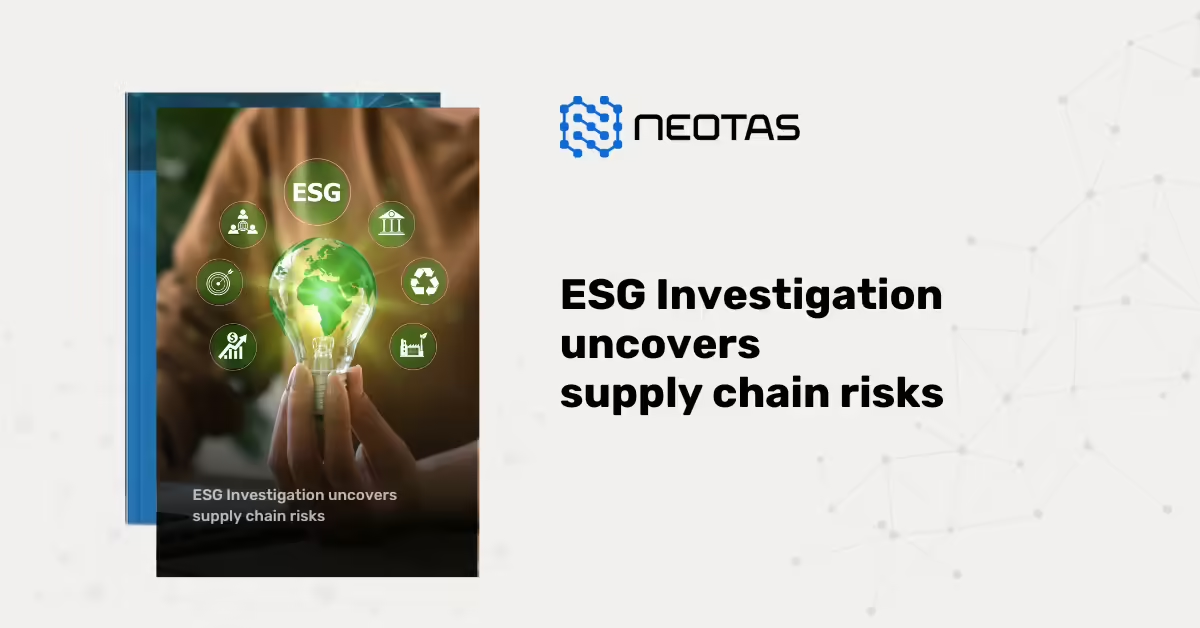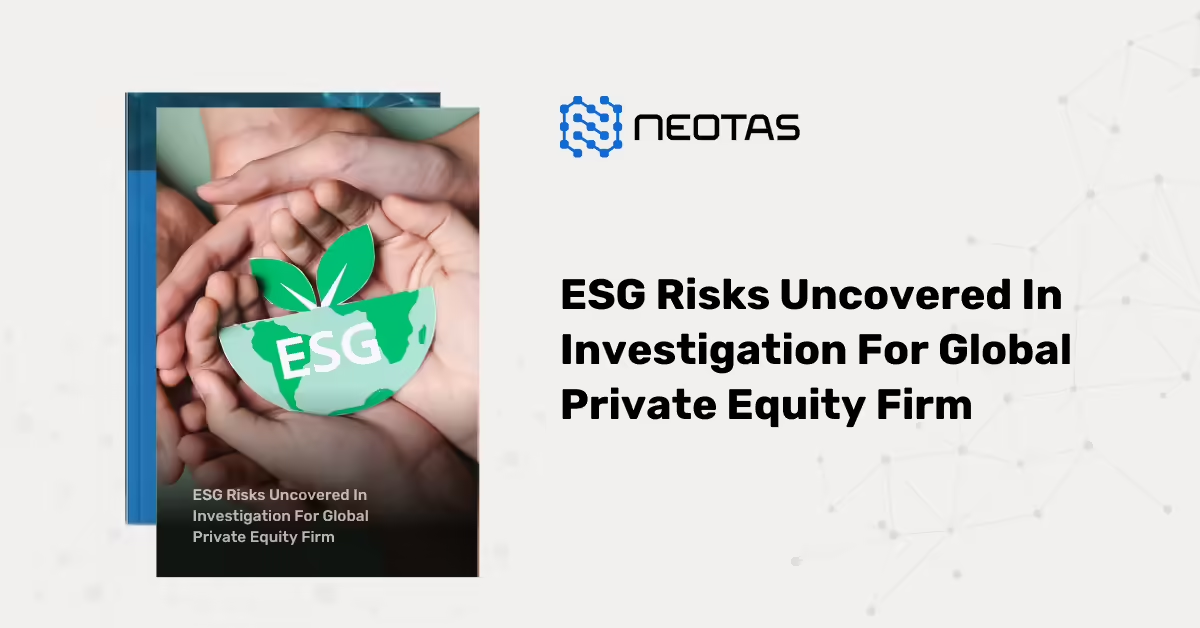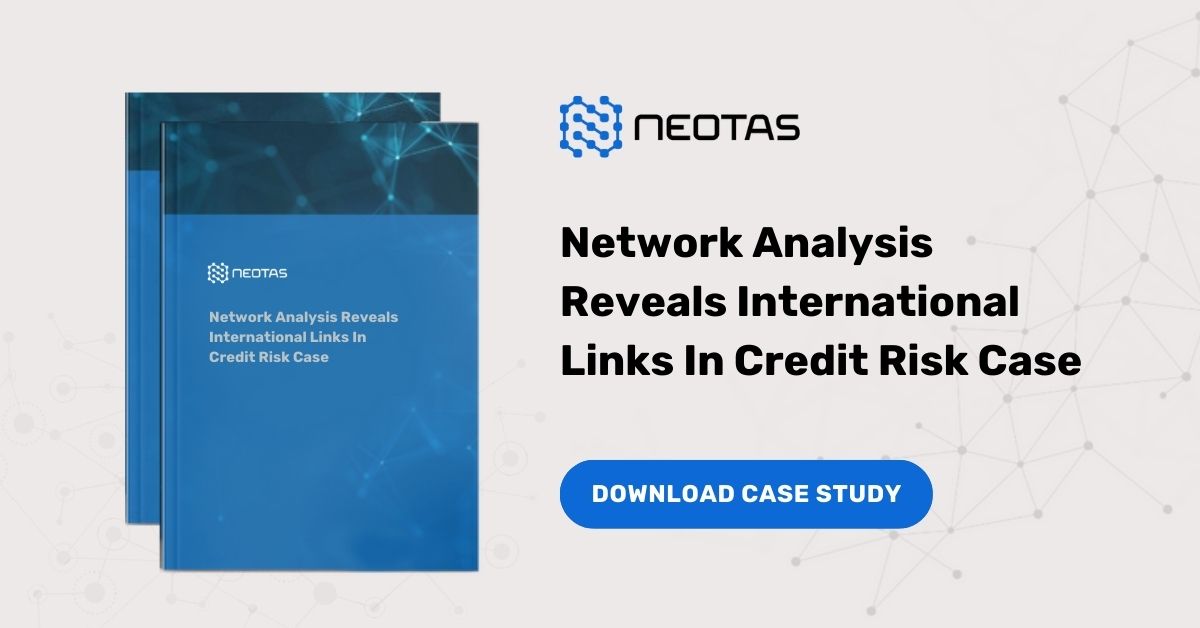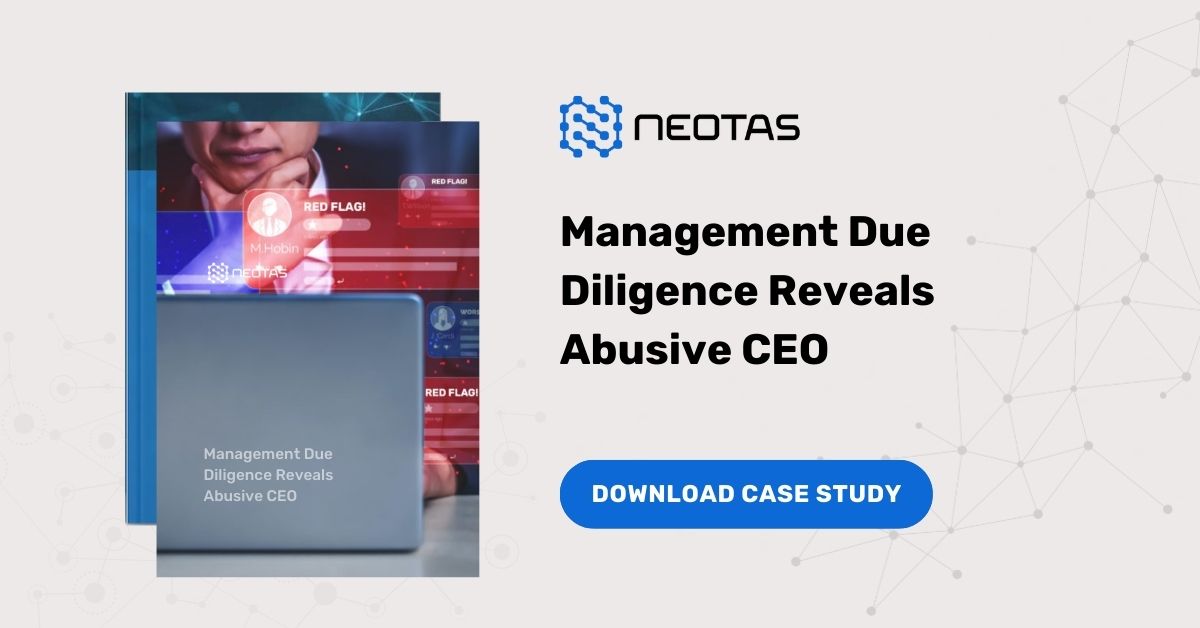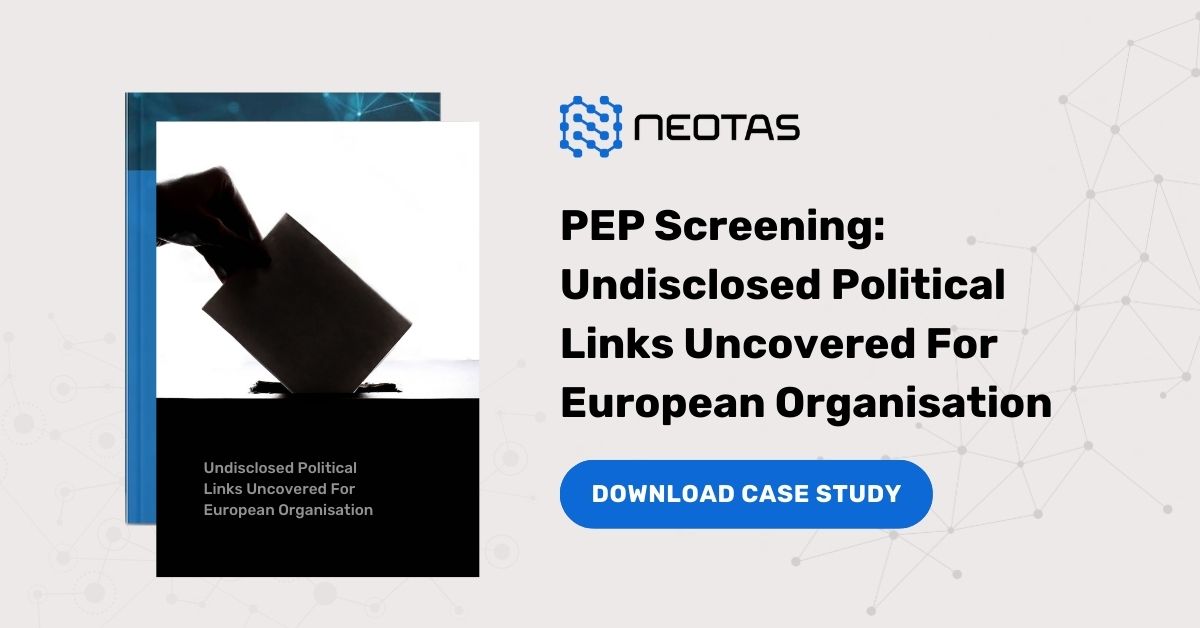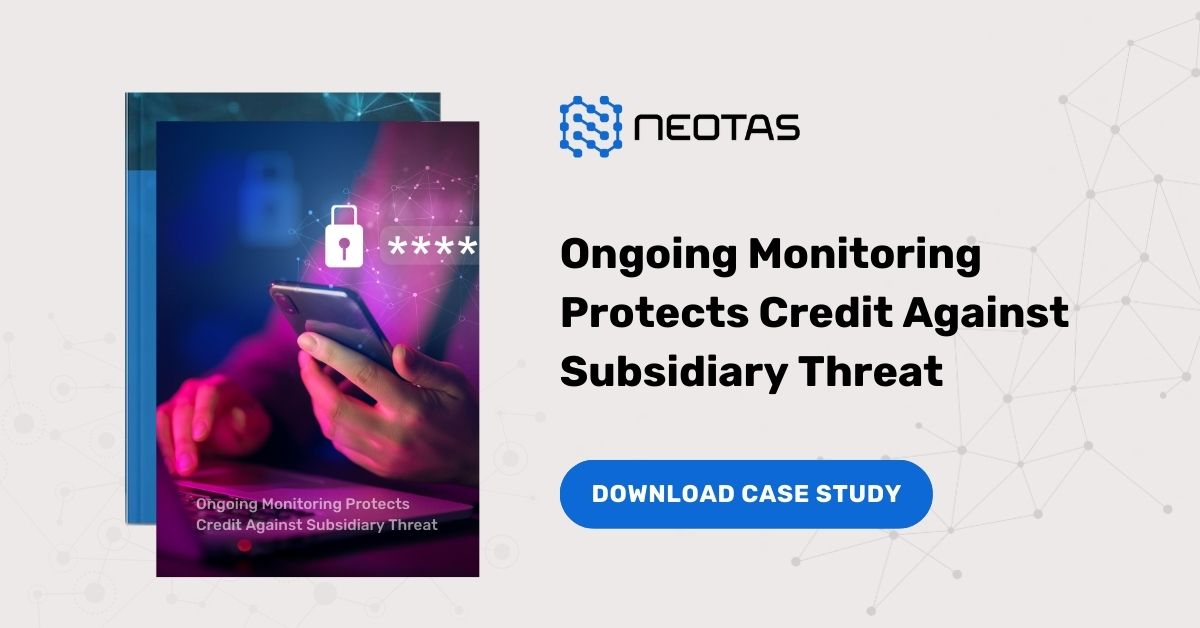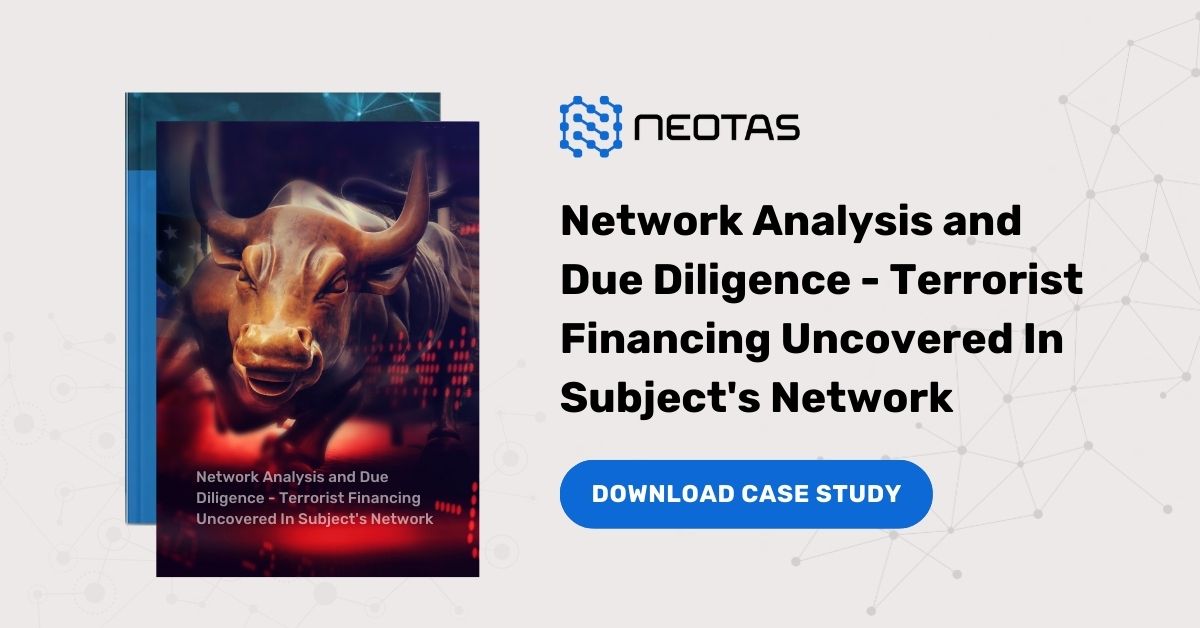Enhanced Due Diligence Case Studies
Our collection of case studies features recent demonstrable examples where insights delivered by Neotas have been significant to our client’s outcomes.
CASE STUDIES
Enhanced Due Diligence
Why Neotas?
We leverage Open source intelligence (OSINT) to use publicly available data to provide organizations with hyper-accurate and fully auditable insights with no false positives.
Improve Efficiencies
Improve analyst efficiencies, including cost and time reduction of minimum 25% with zero false positives.
Reduce Blindspots
The FCA recommends open source Internet checks as best practice (FG 18/5). Manage and reduce risk by incorporating 100% of online sources into your processes.
Ongoing Monitoring
Manage risk with hyper accurate ongoing monitoring. We will monitor 100% of publicly available online data to help identify relevant risks.

